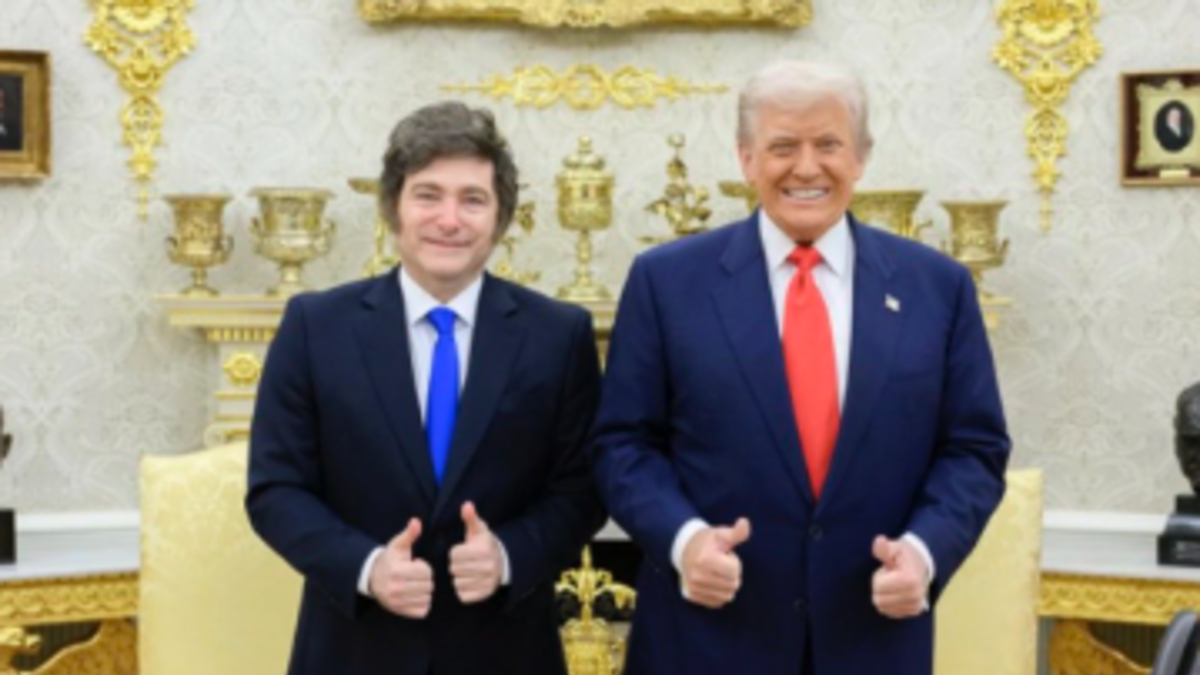High interest rates will lead to a record year for private and state banks, while the impact of Artificial Intelligence on the campaign and Isaac Alfie’s resignation from the OPP are two unknowns at business lunches.
The month of December is intense in terms of business meetings, farewells and reunions, in an accelerated race against the clock before the end of year holidays and the exodus to the Eastern beaches. On Monday afternoon, in the Hotel Cottage one of the busiest events took place: BBVA announced that Rosario Corral, her commercial director for 40 years, left her position in the hands of the Spaniard Luis Foix. Corral joined BBVA at the age of 19 and, in an extensive and renowned career, he was the protagonist of the consolidation of the bank in its various stages, overcoming crises and taking advantage of moments of valuable development and growth. On a very emotional day, there were colleagues, professionals, several media outlets and top businessmen, including presidents of the main business chambers. BBVA is especially active in the corporate banking.
The content you want to access is exclusive to subscribers.
And among exquisite sandwiches and good wines, the comment arose, in a reserved but confident tone: the BBVA is going to have a record result this year. He increase in the international interest rate It will provide banks with income from their assets placed abroad that they have not had until now and that will make 2023 an exceptional year. “In what are effective financial intermediation businesses, things are a little more difficult, but we hope that next year will be better,” commented a leader while enjoying a white wine.


This record year that is set for banking also includes – of course – state banking: the result of the Bank of the Republic (BROU) It will be exceptional this year, according to what its authorities commented at a dinner reserved for businessmen and professionals. “We have had very low interest rates for many years; now there is a rate”, he emphasized. The increase in income will be formidable, so much so that an accountant – with a great sense of humor and little filter for comment – asked: “and are they going to pay more for deposits?; Laughing and while processing a juicy sweet and sour pork, they began to exchange rates. “What’s going to be difficult is explaining why we don’t lend more and more broadly,” commented a banking executive as she listened to the talk.
The matter is going to arise right in the middle of the discussion on the usury bill and the initiative of Town meeting to establish the so-called fair debt and reprofile the indebtedness of tens of thousands of Uruguayans who, today, are in the Clearing and without the possibility of taking out new credit. Everything indicates that we will have a vibrant discussion on the matter in the coming months.
Technology and politics
Another sector that has had a very dynamic year is the telecommunications, with the advance of 5G, the continuous demand for greater connectivity and data, and the revolution of Artificial Intelligence, which everyone talks about and little knows how it will end. The truth is that the businesses of Telcom They have also been strong this year, with increases in data traffic close to 30% annually, a rate enviable for any other sector. “Still, in Uruguay There are obstacles and costs for the business that become difficult when developing more communication-based services,” complained an executive in the sector, while waiting for his flight with friends at the airport. He argued that the infrastructure has been widely deployed and now it is time to add more value in digitization and IT services.
In it political sphere, the emergence of the Artificial intelligence and the possibility of falsifying any type of speech or statement, has put politicians and mainly experts in political communication on guard. “It’s going to be a difficult campaign, because the tone is already quite aggressive and if we add to that what comes via Artificial Intelligence, the combo can become explosive,” added a worried veteran expert in Electoral campaigns, while he checked his suitcase and showed his passport.
Farewell
The speech surprised several of those present. The Economist Isaac Alfie had announced a few hours ago that he would leave the management of the Office of Planning and Budget (OPP)and after noon he gave a lecture at a lunch organized by the Camera of Uruguay-USA Trade. The first part of his presentation was dedicated to reflections that had more to do with questions of philosophy, life and more general political issues than with questions of economics, which – surely – was what most of the diners expected. . The innovation was welcome: Alfie is one of the most experienced politicians in government today, a veteran of several battles in the Ministry of Economy and Financeand in politics in general, even with parliamentary experience.
It is one of the references of more orthodox look in fiscal matters within the government coalition and his departure has given rise to much speculation. “Now you’re going to have to spend more time at home,” one of the attendees joked with Alfie’s wife, who accompanied him on this occasion, something that is not common.
The leader has remained quite cryptic regarding his decision to leave the OPP, with more than a year left to complete the administration. When asked by one of the attendees about whether he was going to make politics, He responded: “I am always here to help.” It must be remembered that beyond the fact that Alfie participates in the government in a personal capacity, at the explicit request of the president Luis Lacalle Pouthe economist is purebred colorado. It would not be strange to see him contributing to his Party’s proposals next year. In the coalition, together, but not intertwined.
Source: Ambito




